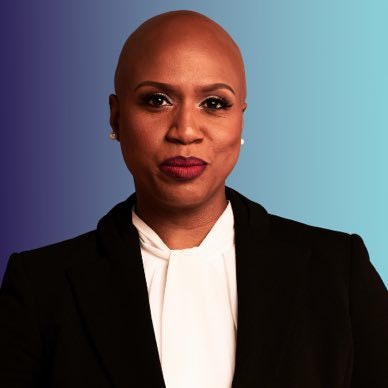On Monday, the American Association of University Professors and the American Federation of Teachers launched a national joint campaign, in collaboration with the Roosevelt Institute, called “A New Deal for Higher Education,” which advocates for the reauthorization of the Higher Education Act and large-scale federal investment in the higher education sector.
“Decades of disinvestment in public education, in particular higher ed, has led to chronic underfunding of our institutions,” said Dr. Irene Mulvey, president of the American Association of University Professors, at a virtual launch event on Zoom. “This is responsible in large part for the student debt crisis, for widening racial inequities and for an impoverished academic profession. Those of us in higher ed have long recognized that this is unsustainable. Now is the time for a New Deal for higher ed.”
Mulvey encouraged educators to take immediate action and support President Joe Biden’s American Rescue Plan, which would put $35 billion in emergency funding toward protecting jobs in higher education and toward enabling in-person learning through vaccinations, testing and other safety measures. But she warned against a “Band-Aid approach” to higher education’s inequities in reaction to the pandemic.
U.S. Rep. Ayanna Pressley agreed that higher education can’t revert to an “insufficient, unjust normal.” She pointed to declining state funding for public universities, including historically Black colleges and other minority serving institutions, which she described as “beacons of economic mobility” for Black and Latinx communities. She also pointed to Pell Grants and federal financial aid programs as neglected and in need of government investment.
Pressley called on her fellow lawmakers to push the Biden administration to take executive action on cancelling student loan debt; ensure university staff encounter fair labor practices; and reauthorize a Higher Education Act that increases the Pell Grant and puts more funding toward campus childcare, transportation and mental health supports.
 Rep. Ayanna Pressley
Rep. Ayanna Pressley“We truly need a New Deal for higher education, one that invests in public education as the public good that it is, one that invests [in] and supports the higher education workforce [and] diversifies the pipeline of our future educators, researchers and faculty that will go on to shape the future our nation so desperately needs,” Pressley said. “And this will take an all-hands-on-deck approach at every level of government.”
In a video played at the event, U.S. Sen. Elizabeth Warren highlighted the student debt crisis, describing it as an “anchor dragging down our struggling economy and holding millions of people back,” especially Black and Brown borrowers and teachers. She pointed to the resolution she introduced with Democratic Majority Leader Chuck Schumer, urging Biden to cancel $50,000 in student loan debt per student, and, in the long term, advocated for “free tuition and zero debt” at public colleges and universities.
Rutgers University History Professor Dr. Jennifer Mittelstadt said universities were once “sources of access, opportunity, upward mobility” and “providers of stable jobs,” but now she sees rising tuitions and “skewed budget priorities” like “fancy” stadiums and “bloated” administrator salaries, while faculty, staff and students face “austerity and sacrifice,” she said. Mittelstadt founded a group called Scholars for a New Deal for Higher Education in response, co-authoring a brief called “A True New Deal for Higher Education: How a Stimulus for Higher Ed Can Advance Progressive Policy Goals.”
The network of scholars is backing a call for the government to invest in public institutions, as well as non-elite non-profit private institutions; to ensure living wages for workers like adjunct faculty and campus support staff; and to put funds toward lowering college costs, increasing grant money for college education and cancelling student debt.
For a New Deal for Higher Education to succeed, it needs to be equity-focused, said President of the California Faculty Association Dr. Charles Toombs, a professor of Africana Studies at San Diego State University. For example, he emphasized the need for ethnic studies, now a requirement for Cal State graduates, campus police reform and solutions to the extra mentoring burdens faculty of color take on.
“We must, during this campaign, create real policy changes and action that chart a new, inclusive, anti-racist and social justice direction for higher education,” Toombs said. “To not center this is to support a system that only works for those who are White and privileged. To not do this means this current campaign is not a new deal at all.”
Pressley also emphasized that solving disparities in higher education, and the country at large, requires “dismantling the generations of intentional policy violence that has created these inequities to begin with, … unapologetically and with fierceness and urgency.”
“None of these inequities and disparities and racial injustices were naturally occurring,” she said. “They were codified in law. That’s why I say that policy is my love language, because if we can legislate hurt and harm and inequity, then we can and we must be just as precise and prescriptive in reversing and mitigating the hurt by legislating equity, healing and justice.”
Sara Weissman can be reached at [email protected]



















